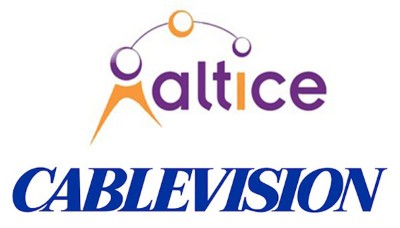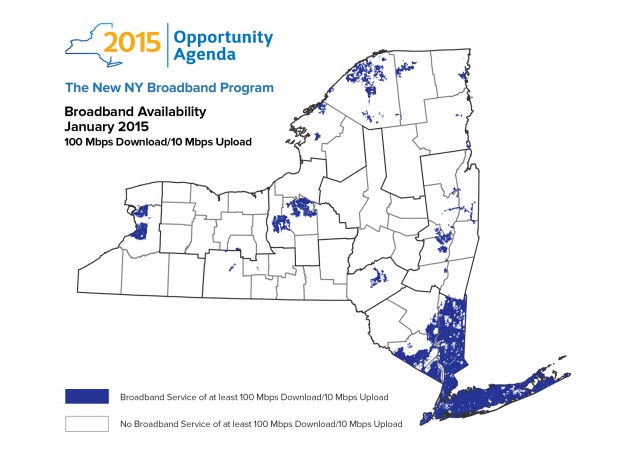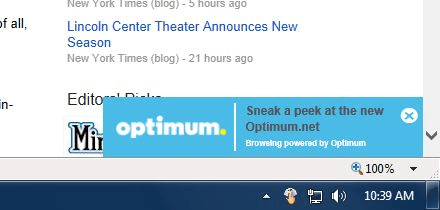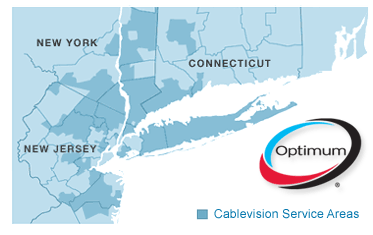 Altice USA today unveiled faster broadband service for Cablevision customers in the Tri-State Area of New York, New Jersey, and Connecticut. You can now subscribe to faster service plans topping out at 300Mbps for residential customers and 350Mbps for commercial accounts.
Altice USA today unveiled faster broadband service for Cablevision customers in the Tri-State Area of New York, New Jersey, and Connecticut. You can now subscribe to faster service plans topping out at 300Mbps for residential customers and 350Mbps for commercial accounts.
Altice was required to boost internet speeds in New York State as part of winning approval for the buyout of Cablevision from the state’s Department of Public Service (formerly the Public Service Commission). But customers in New Jersey and Connecticut will also benefit.
New Internet Services
(bundling TV and phone service can reduce these prices and customers may need to call 1-888-298-9771 to change service if grandfathered on older plans):
| Optimum Online (25/5Mbps) | $59.95 | ||
| Additional Modem(s) | $49.95 each | ||
| Optimum 60 | add $4.95 | ||
| Optimum 100 | add $10.00 | ||
| Optimum 200 | add $20.00 | ||
| Optimum 300 | add $55.00 | ||
Prior to the upgrade, the fastest speed most customers could get from Cablevision was 101Mbps. Based on pricing, the best value for money is the 200Mbps plan if you are looking for faster service. A $55 charge monthly charge for 300Mbps is $35 more than the logical rate step between lower speed tiers. Standalone customers would effectively pay $114.95 a month for 300Mbps vs. $79.95 for 200Mbps.
Altice has achieved the internet speed requirement imposed by New York regulators more than a year ahead of schedule. The same cannot be said for Charter Communications, which has canceled Time Warner Cable Maxx upgrades that were already underway in former Time Warner service areas. Customers may have to wait until 2019 in New York (later elsewhere) for Charter to upgrade all of its service areas to support 300Mbps. Altice’s other owned-and-operated cable operator – Suddenlink Communications, is also still laboring to boost broadband speeds and has left usage caps and usage billing in place for its customers in mostly smaller cities across the United States.


 Subscribe
Subscribe
 The attorney general’s investigation is particularly focused on so-called interconnection arrangements, or contractual deals that Internet service providers strike with other networks for the mutual exchange of data.
The attorney general’s investigation is particularly focused on so-called interconnection arrangements, or contractual deals that Internet service providers strike with other networks for the mutual exchange of data. Cablevision has treated its broadband subscribers to a free speed boost for those signed up for the basic Optimum Online Internet tier. The old speed of 15/5Mbps has today been raised to 25/5Mbps, meeting the FCC’s minimum speed to qualify as broadband service.
Cablevision has treated its broadband subscribers to a free speed boost for those signed up for the basic Optimum Online Internet tier. The old speed of 15/5Mbps has today been raised to 25/5Mbps, meeting the FCC’s minimum speed to qualify as broadband service.
 Cablevision will maintain unlimited Optimum Online broadband service to all of its customers and will not introduce usage-based pricing, according to Gregg Seibert, chief financial officer.
Cablevision will maintain unlimited Optimum Online broadband service to all of its customers and will not introduce usage-based pricing, according to Gregg Seibert, chief financial officer.